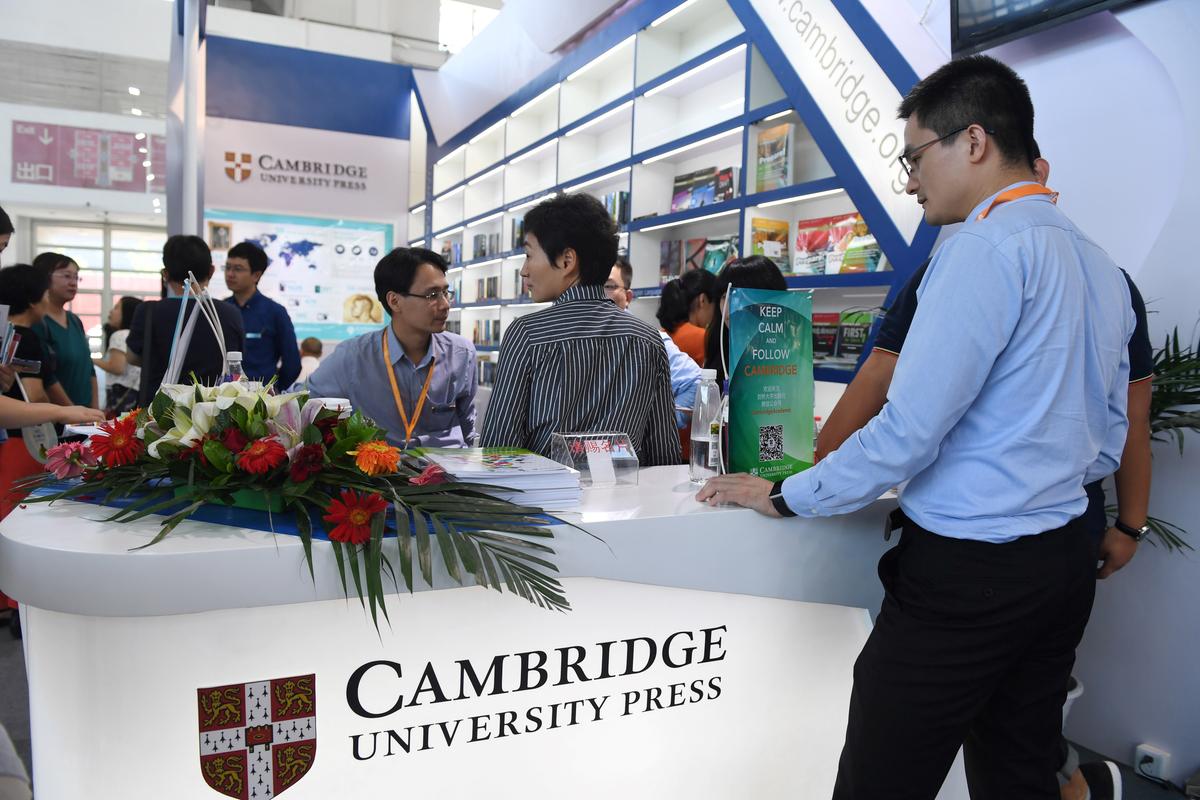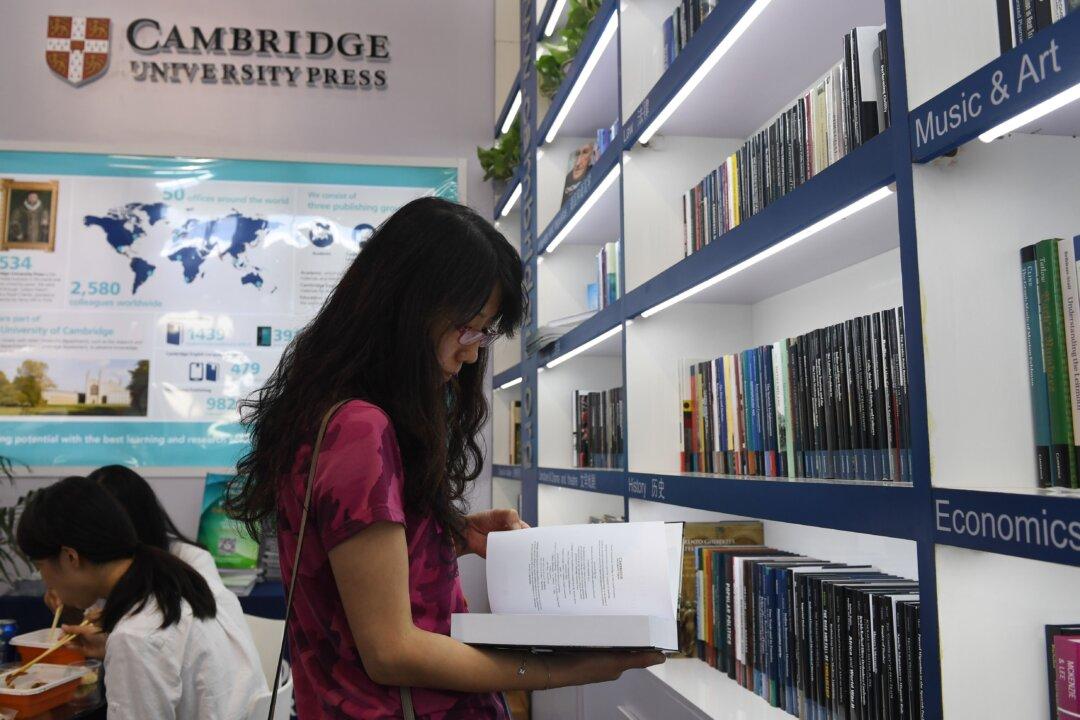Cambridge University announced on Aug. 24 that it “does not and will not block“ e-books for the Chinese market. The statement came after Beijing asked Cambridge University Press to remove over 300 articles of an academic journal, to which the publisher initially complied, but later reversed.
The world’s oldest publishing house, Cambridge University Press (CUP), revealed on Aug. 18 that they were asked by Beijing to block online access to 315 articles of China Quarterly, a highly respected academic journal published by CUP, in the Chinese market.
The blocked articles address topics including Falun Gong, the Tiananmen Square massacre, Tibet, and the Cultural Revolution—all deemed highly sensitive by the Chinese Communist Party (CCP).
Fearing online access to its other publications would be blocked, the publisher complied with Beijing’s request.
“We are aware that other publishers have had entire collections of content blocked in China. ... [We] will only consider blocking individual items (when requested to do so) when the wider availability of content is at risk,” reads the statement.
CUP’s compliance with China’s censorship led to strong protest from the international academic community, including a petition signed by nearly 1,300 people threatening to boycott CUP’s publications.
“If Cambridge University Press acquiesces to the demands of the Chinese government, we as academics and universities reserve the right to pursue other actions including boycotts of Cambridge University Press and related journals,” wrote Christopher Balding, an American political economist and Associate professor at Beijing University, who started the petition on change.org.
Amidst growing outrage, Cambridge University decided to re-post the over 300 blocked articles on Aug. 21.
That same day, the Journal of Asian Studies was asked by China’s General Administration of Press and Publications to remove around 100 articles of a second academic journal published by CUP from its websites in China.
In the non-profit world of academic publishing, the revenue generated from a massive Chinese online readership is tempting for Western publishers.
Hu Ping, a former managing editor of Beijing Spring, said the CCP’s tight control of foreign market access has created a false perception for Westerners that anything is better than nothing. Beijing Spring is a prominent New York-based online magazine in Chinese that covers China’s democracy movement and rights issues.
“Westerners have a kind of illusion,” Hu told NTD TV’s Chinese language edition. “They think as long as some of their articles can be imported, that still counts: ‘If you don’t take these articles, we can just delete them and we will give you other articles, which is better than nothing.’”
“The result is that nobody fights against the unreasonable request of the Chinese government, and they simply choose to compromise instead,” Hu added.






